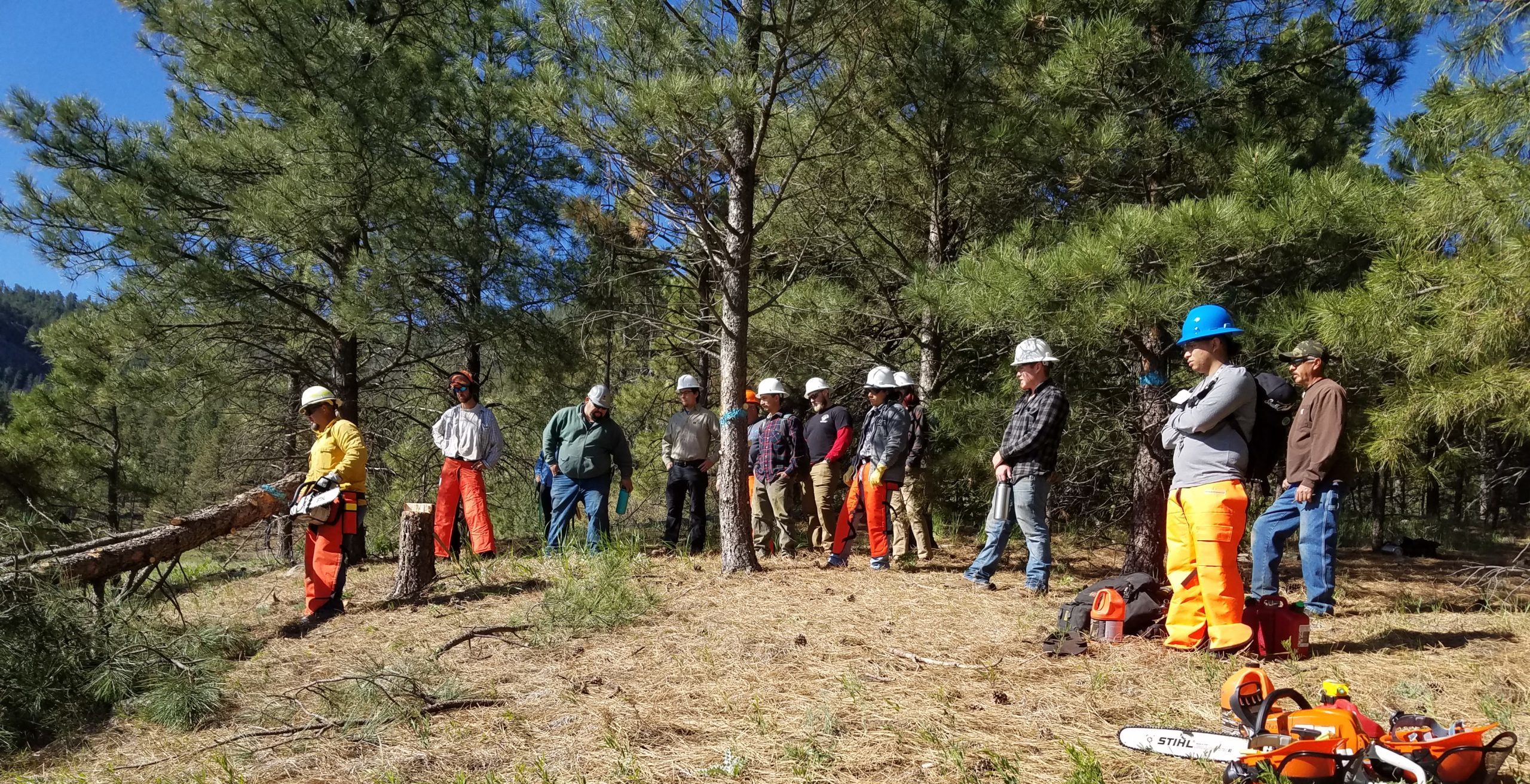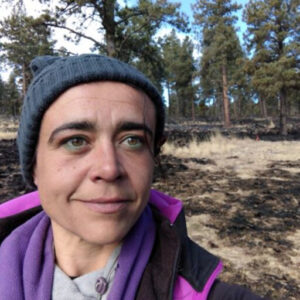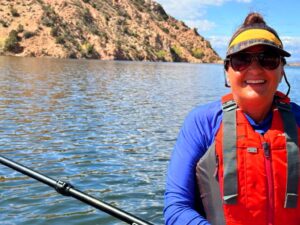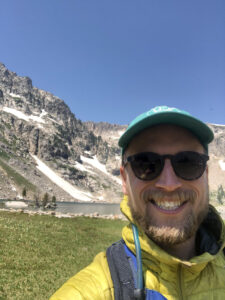
Department of Forestry
 We are New Mexico’s Premier Forestry School
We are New Mexico’s Premier Forestry School
Our forestry program is a gateway to a rewarding and exciting career in forestry;
We invite our students to become stewards of natural resources to create a sustainable future for New Mexico and beyond. The Highlands Forestry program is
- A leader in reforestation research and application in the Nation
- In a geography with unique ecoregions ranging from the plains to the alpine
- A diverse faculty dedicated to place-based curriculum with a global perspective
- The educational program in Forestry (BS) is accredited by the Society of American Foresters
The Department of Forestry houses the Forestry and Conservation Management programs. Areas of study focus on the management of forest and rangeland ecosystems, the natural resources and biodiversity they contain, and the ecosystem services they provide.
Programs emphasize the sustainable adaptive management of forests and rangeland through the application of ecological principles and knowledge, in conjunction with an understanding of economics, human dimensions, and law and policy.
The Department of Forestry offers instructional programs leading to a Bachelor of Science (B.S.) in Forestry, a Bachelor of Arts (B.A.) in Conservation Management, and minors in Wildland Fire and Wildlife Management.
The NMHU Forestry program is accredited by the Society of American Foresters and is the only accredited Forestry program in the State of New Mexico.
Fall Admission
Applications are due no later than the first Friday in February for priority admissions and assistantships.
Spring Admission
Applications are due no later than the first Friday in September for priority admissions and assistantships.
Applications are accepted year-round and may be reviewed on a rolling basis at the discretion of program faculty.
Society of American Foresters Accreditation:
The B.S. Forestry program at New Mexico Highlands University is accredited by the Society of American Foresters.
Conservation Management
Conservation Management provides students with skills to integrate the diverse array of social, political, legal, institutional, cultural, economic, ecological, and biophysical considerations inherent in attaining environmental and resource management goals. This degree prepares students for a variety of careers in research, industry, education, government, or public service.
Students must complete a total of 43 to 46 hours in anthropology, biology, chemistry, forestry, and geology. The University requires at least 45 credit hours in upper (300-400 level) courses. The B.A. in Conservation Management requires a minor.
Our Programs
Forestry is the application of scientific principles to the sustainable management of forest resources, including a wide range of ecosystem services (e.g., non-timber forest products, wildlife, medicinal herbs, and craft materials), fresh water, and biodiversity. The primary goal of the forestry program is to train technically competent forest and natural resources managers who understand the ecological notions that underpin human use of forest resources.
Graduates of the Forestry Program meet all federal requirements for employment as a professional forester. Students receive training in the various techniques used to determine resource quantities and qualities, economic values, and social constraints in the management of natural resources. Students who major in forestry are not required to take a minor. A summer field course is required of all students prior to their graduation. Students who wish to pursue graduate degrees should talk to an adviser about recommended coursework.
The B.S. in Forestry offers two concentrations of study – Forestry Management and Wildland Fire. The Forestry Management concentration focuses on the management of timber as well as a wide range of ecosystem services produced by private and public lands. The Wildland Fire program, one of the few in the country, offers state-of-the-art instruction in the use and management of fire on the broad landscapes of the west.
In this era of rapid environmental change, these forestry fields are in increasing demand. After graduation, New Mexico Highlands University forestry students are prepared to meet that demand and embark on exciting and rewarding careers. The NMHU Forestry Program is accredited by the Society of American Foresters.
Conservation Management provides students with skills to integrate the diverse array of social, political, legal, institutional, cultural, economic, ecological, and biophysical considerations inherent in attaining environmental and resource management goals. This degree prepares students for a variety of careers in research, industry, education, government, or public service.
Students must complete a total of 43 to 46 hours in anthropology, biology, chemistry, forestry, and geology. The University requires at least 45 credit hours in upper (300-400 level) courses. The B.A. in Conservation Management requires a minor.
Forestry course requirements for graduation
The Department of Forestry offers an MS Natural Science degree with a concentration in Environmental Science & Management. This program is designed around a core set of foundational courses after which students develop individualized programs of study (course work plus independent research) that incorporate each student’s distinctive background, educational goals, and career objectives. Students gain experience in the design, execution, and reporting of scientific research by completing a master’s thesis (thesis option) or an independent study/research project (non-thesis option).
The M.S. in Natural Science provides a unique opportunity for students to broaden their educational experience to include courses from fields they are less likely to encounter at traditional graduate programs as they prepare for employment in industry, government, or education or entry into doctoral programs.
Degree Requirements
The New Mexico Highlands undergraduate catalog outlines your options and the steps you need to take to complete degree requirements for your chosen major. To ensure the seamless completion of your degree, consult often with your academic adviser and utilize Highlands’ Degree Audit tool to keep track of your academic progress.
The New Mexico Highlands undergraduate catalog outlines your options and the steps you need to take to complete degree requirements for your chosen major. To ensure the seamless completion of your degree, consult often with your academic adviser and utilize Highlands’ Degree Audit tool to keep track of your academic progress.
Graduate students are assigned to a faculty adviser within their area of study. The faculty adviser will help the student complete a program of study to satisfy the specific course requirements within their area, outlined in the Graduate Catalog. The courses listed must satisfy the course requirements prescribed in the catalog of record. The academic adviser will provide guidance in completing your program of study.
B.S. Forestry Graduate Placement Rates
Academic Year Placement* (%)
2019-2020 **
2018-2019 **
2017-2018: 100
USDA Forest Service, New Mexico Forest and Watershed Restoration Institute
2016-2017: 100
USDA Forest Service
2015-2016: 67
USDI Bureau of Indian Affairs, New Mexico Forest and Watershed Restoration Institute
2014-2015: 80
USDA Forest Service
2013-2014: 86
USDA Forest Service, USDI Bureau of Land Management, USDI Bureau of Indian Affairs, Graduate School
2012-2013: 100
USDA Forest Service, Graduate School
2011-2012: 86
USDA Forest Service, Graduate School
2010-2011: 67
USDA Forest Service, New Mexico Forest and Watershed Restoration Institute
2009-2010: 100
USDA Forest Service, NM EMNRD Forestry Division, USDI Bureau of Land Management
2008-2009: 100
USDA Forest Service, Graduate School
2007-2008: 83
USDA Forest Service, NM EMNRD Forestry Division, NM State Parks, USDI National Park Service
2006-2007: 100
USDA Forest Service
* Placement in jobs in their field of study or graduate school based on recent graduate survey responses
** Data under collection
Latest News
Forestry department gets major grant from National Science Foundation
The National Science Foundation has announced an award of $5 million to establish a Center of Research Excellence in Science and Technology for Forest Restoration at New Mexico Highlands University. This award, received jointly by NMHU Forestry, the New Mexico Forest and Watershed Restoration Institute, and NMSU’s John T. Harrington Forestry Research Center, heralds the beginning of an exciting new era for forestry in the Southwest. We look forward to engaging current and new students in the activities of this new Center of Research Excellence. More news will be forthcoming in early spring 2020 about our new NSF Center.
New Mexico Highlands University offers the only bachelor’s degree in forestry in New Mexico. Students majoring in forestry at the undergraduate level may choose a concentration in forest management or wildland fire. The program also offers a master of science degree in natural resource management. The program is continually changing to give students a real-world understanding of ecological functions and emerging modern technologies like global positioning systems, geographic information systems, and computerized data collection.
Faculty and Staff
Blanca Cespedes, Ph.D.
ASSOCIATE PROFESSOR
Research Interests: Fire science and ecology
email: bcespedes@nmhu.edu
Joshua L. Sloan, Ph.D.
ASSOCIATE VICE PRESIDENT OF ACADEMIC AFFAIRS: FORESTRY AND THE REFORESTATION CENTER;
Research interests: Silviculture and forest management
email: jlsloan@nmhu.edu
Alan Barton, Ph.D., J.D.
LAW AND POLICY, HUMAN DIMENSIONS; NEW MEXICO FOREST AND WATERSHED RESTORATION INSTITUTE
Kathryn Baker, Ph.D.
ASSISTANT PROFESSOR; GRADUATE COORDINATOR
 Research interests: Ecohydrology
Research interests: Ecohydrology
email: kvbaker@nmhu.edu
Michael Remke, Ph.D.
ASSISTANT PROFESSOR;
Research interests: Plant ecology and plant-soil interactions
email: mremke@nmhu.edu
Julie Tsatsaros, Ph.D.

INSTRUCTOR AND RESEARCHER
Research interests: Freshwater resources, watershed management, and transdisciplinary research
email: jtsatsaros@nmhu.edu
Aalap Dixit, Ph.D.
ASSISTANT PROFESSOR
DEPARTMENT OF FORESTRY
FOREST SCIENCE AND MANAGEMENT
Nathan Tomczyk, Ph.D.
RESEARCHER AND INSTRUCTOR

New Mexico Forest and Watershed Restoration Institute
Research Interest : Watershed restoration and ecosystem ecology
email: ntomczyk@nmhu.edu
James R. Biggs, Ph.D.
DEPARTMENT OF FORESTRY
WILDLIFE AND FIRE ECOLOGY

